This is the first of hopefully many more traveler portraits on ESCapology. As mentioned before, I want to use the blog as a platform to introduce successful and inspiring travelers and share their story with you. The series will start with Ralf from Holland whose travel blog I accidently stumbled upon while browsing the interwebs. He is a very inspirational character not only because of his very special way to finance his travels but also because of his impressive travel experience and his very own approach to traveling. So without further ado, please meet Ralf …
ESCapology: Ralf, nice to meet you. Please introduce yourself to our readers here at ESCapology.
My name is Ralf Kreuze, I am from The Netherlands, and am 39 years old. I am the youngest of three, with an older brother and sister. My mother is Swedish, my father Dutch. I was born in Bangkok, Thailand, just like my brother and sister. My parents lived for ten years in Thailand and that is also where they met. My mother was an air-hostess for SAS at the time, stationed in Bangkok, my father was a civil engineer working for the Mekong river committee. So travelling is clearly in the family genes.
In the early years of my life I lived in Thailand, The Netherlands and Sri-Lanka, settling for good in The Netherlands when I was around 6. The reason for settling in The Netherlands was that my parents wanted us to feel like we belonged somewhere, and for educational purposes. My father however kept working abroad and as such we didn’t see him much when we were young. Sounds sad, but we were used to it, so it was normal for us. He came home during summer and for Christmas. On our summer holidays our parents took us around Europe. Later on we went to visit my dad wherever he was working. Travelling was always part of our way of life. Therefore I was fortunate enough to have already seen a reasonable part of the world before I turned eighteen.
Having travelled and seen the world from a young age, it was only natural that all of us wanted to see more of the world. If you look at my family now, this is very obvious. My brother lives and works in Lima, Peru with his Finnish wife and three children, my sister has lived in England, Singapore and Dubai and has now moved to Switzerland, she is married to a South African and has three children as well. And I have turned into a complete nomad just travelling the world for the hell of it, though I must admit I tried to do the right thing to start with.
I have turned into a complete nomad just travelling the world for the hell of it ….
When I was 18, although I knew I wanted to travel, I decided to study, simply because I thought that was what one should do after high school. I kept it up for many, many years but never finished it. It just wasn’t who I was or what I wanted. I don’t regret it because I had a blast and made loads of good friends. And I clearly needed that time to realise not to be scared and just make the leap and do what I really loved, which is travel. It was then that I grasped that life was too short to waste on trying to do what other expect you to do. Or actually what you think others expect you to do. We like to blame others, but really we shackle ourselves. We fear what others might or might not think of us if we do something, and therefore decide not to do it. Anyway, as said, I started my new life as a traveller and I have never looked back.
… life was too short to waste on trying to do what other expect you to do.
Since about eight years or so I have started writing blogs about my trips, for family and friends, but I have a feeling it is mostly strangers who read it. While it started out as a way for my friends and family to follow me, nowadays I write it as much for myself as for anybody else. I like writing, and it is nice to look back at them and see what my thoughts were.
ESCapology: When did you start traveling and why?
There are various answers to this question. I might say that I was born travelling. I have never known any different. My parents took us all over the place. Or I could define my first big trip on my own as the start of my travel career, which was taking the trans-Siberian to Beijing and travelling around China when I was 18.
I could also pick the date that I changed my life, quit studying and decided to follow my heart and chose to travel the rest of my life. That is when I started my nomadic lifestyle, where the focus of my life became travelling.
I guess the answer is a combination of the three. Why? The answer to that is hidden in the intro. In short, it is part of my history. I have always travelled, the only difference is that now it is not my parents that are dragging me along, but it is my own desire.
ESCapology: I know that you have a very unique approach to fund your travels. Please tell us a little bit about what you do and how that works.
At first I did what many backpackers do, work various odd jobs around the world (working holiday visa in New Zealand and Australia and working cash in hand in Canada and a stint of working in the London underground as a labourer), until I discovered the wonderful world of clinical trials. Clinical trials, are trials where pharmaceutical companies test new drugs on human guinea pigs.
It works like this, when a pharmaceutical company creates a new drug, it first tests this drug on tissue, than on animals working up the scale from simple to complex (or in other words from mice to monkeys), until eventually arriving at humans. For this they need volunteers. And that is where I come in, because they pay rather well.
Is it dangerous? No more than any other job. At least by law it isn’t allowed to be, obviously you can decide for yourself if you believe that. But if you research a little, you will find out that it probably isn’t more dangerous than any other kind of work. First, by the time they test it on humans the drug has to be safe. That means that the trials on animals should not have resulted in any unusual deaths or severe side effects at normal dosage (unfortunately they do over-dose on animal tests to find out what the maximum safe dosage is). Second, an independent government commission checks the results on animal trials before giving the go for trials on humans. Third, it is of course of no use to a pharmaceutical company to test unsafe drugs on human volunteers, because if we die that is terrible advertisement for them which could potentially harm them so much that it will cause the company to go broke (who is going to trust a company with a track record of drugs that routinely kill during trials on human volunteers?)
“Is it dangerous? No more than any other job.”
For myself I have a few more criteria a trial has to meet before I will go for it. I will never go for a first on human trial (basically I won’t volunteer to be in the first ever group of humans to test the drug), and I draw the line at certain new drugs (I won’t do cancer drugs because I expect they will have more severe side-effects than for instance a simple drug for asthma). I will also not do more than two trials a year, which is enough anyway for travelling.
So, I would say it is relatively safe. You might wonder if I have any ailment, and the answer would be no. I have none of the illnesses that the drugs that I test are being developed for. The clinical trials I participate in are for healthy volunteers, and they make sure you are healthy before they allow you to partake. You have to go through a thorough medical check-up and they check with your doctor to make sure you are not lying about your medical history, before deciding if you are suitable for whatever study you have registered for.
“Clinical trials, are trials where pharmaceutical companies test new drugs on human guinea pigs.”
Why use healthy volunteers? The primary reason for the trials on healthy volunteers is to find out what the optimum dosage is under what circumstances (dosing before a meal, or after a meal, or fasted, with water, dosing with a pill or an inhaler, or intravenously etc. etc.). For about two years they test a new drug on thousands of volunteers under different conditions and with varying dosages (within limits). That means they take a lot of blood, to see how long it takes for the drug to reach its maximum level in the body and how long it takes for the body to break it down again.
The draw-back for many volunteers is the fact that trials involve being stuck in a clinic, a bit like being in prison. You are not allowed to go out. I personally don’t mind. The clinics are set up to make the life of the volunteers as comfortable as possible, there are TV rooms, you can take your laptop with you, there is internet, games, you get fed well and you meet a lot of interesting people.
The pay is based on the length of a trial. The longer you are in, the more you get paid. So it has nothing to do with the drug, or whether or not it is a first on human trial (you won’t get paid more for them). I normally try to find a trial that is as long as possible, because they pay the best.
The good thing about earning money this way is that it is normally very quick, the disadvantage is that it is uncertain and sometimes it is hard to find a good trial and you are stuck at home longer than you would like.
ESCapology: You have been traveling mostly solo. What would you tell someone who is hesitant and maybe a little afraid of traveling alone?
That depends. I would first ask if that person wants to travel on their own, but is afraid to. Because it could also be that the person simply is not at all interested in travelling on their own, not because they are afraid, but because it just doesn’t appeal to them.
But if the person actually wants to travel on their own, but is afraid to take the step for whatever reason, I would tell them that when you travel you are hardly ever alone. I would suggest to them to start out easy, by picking a destination where many other travellers go to, like Thailand or Costa-Rica or somewhere in Europe. Get a feel for travelling alone in a region where there are many other single backpackers and where getting around is easy. If they like it, they can always move on to the less well travelled regions.
…when you travel you are hardly ever alone
I would also tell them the benefits of travelling alone, the fact you can choose when and where you want to go without having to take account of somebody else, or that you meet many more people when you are alone, and that you are more likely to be invited by locals into their house or to an event if you are on your own.
However, I would tell them the drawbacks as well, that it can be lonely at times, and that it can be hard to always be the one to have to make contact, to socialise and to try and meet people, that it often isn’t fun eating alone. That it can be very tiring when you can’t share the burden of travelling with somebody else, and that when things go wrong (like being cheated or scammed or worse) you have nobody to vent your anger/frustration with.
On the whole though I would tell them that for me the benefits outweigh the drawbacks.
ESCapology: You have been on the road for quite some time now. How has traveling changed in your opinion and how has your approach towards traveling changed over the years.
I think the biggest change has been that travel has become more normal over the years and easier. When I first went to China by train back in 1993, there were far less people on the road. Those who travelled had saved up for years to do so and we were all penny pinchers. There also were a lot more solo travellers, and the age of the average traveller was higher. There were less tourist amenities (hostels, backpacker restaurants, agencies specialised in backpackers etc.), you therefore had far less choice.
The backpackers have also become more affluent, or maybe they spend their money more freely.
What was off-the-beaten track then has often become part of the backpacker trail now. Luckily the world is big and there are still plenty of places out there which are not overrun and where travelling is still like the golden days, with more to discover by yourself.
What was off-the-beaten track then, has often become part of the backpacker trail now.
Another big change is the countries the travellers come from. In the past mainly western Europe, Australia, New Zealand and North America, and perhaps a few Japanese. Nowadays it is much more diverse, with many eastern Europeans, Russians, Koreans, S. Americans and Chinese. It is great to see that they now have the opportunity and the means to backpack as well.
So, how has my own approach to travel changed? Mostly the speed has changed. In the past I would rush through countries, now I take my time. I used to miss out on a lot of places just because I travelled so fast, that is not the case anymore. I have become less focused on my budget as well. I used to keep to it religiously, now I let it fluctuate depending on what I want to do.
And I am not so much into sleeping in the cheapest fleapit in town anymore, unless I don’t have a choice. If I do have a choice, I will find myself a cheap local place which is relatively clean and has its own bathroom.
ESCapology: I know it is a difficult question, but which place or places did you like best so far and why?
As you said, a difficult question and really impossible to answer. I have no favourite country, every country is different and has something that is nice or interesting. My normal answer to this would be that the next country I will visit is the one I like best, because everything will be new and exciting.
Generally I can tell you that the places I like best are the ones I know least about. I like travelling more in a place where I have to find my own way around, than in a place which is full of travellers and everything can be done for me. I don’t particularly like a beach/village/town/country full of backpacker bars and hotels.
…the next country I will visit is the one I like best, because everything will be new and exciting.
The reason why is that it gives me more satisfaction, because I have no clue what to expect. I don’t get the same fulfilment going to a country or place that I have seen on thousands of pictures, or heard millions of stories about from all those other backpackers who have been there before me. For me travelling is discovering something new and doing it all by yourself.
That might sound snobbish, but it isn’t meant like that. I won’t avoid a place because it is well known and I, like many others, have seen the Ankors and Taj Mahals of this world. I just know that I feel happiest when I don’t have to deal with the crowds, and I feel better when I have to find my own way around.
ESCapology: It seems like a lot of people who would love to go traveling are having a hard time to break out of their routine and tend to get stuck in what they do. I myself had a pretty difficult time deciding to quit my job to go travel for a year. What would be your advice for someone in a similar situation?
Just break it. Don’t be afraid. There is nothing to fear. If you are unhappy where you are there is no reason to stay, the worst that can happen is that you are just as unhappy somewhere else, but at least even in that case you are still somewhere else.
However, this advice also depends a bit on the situation. If you have a family it is not so easy to leave your job or break free, after all somebody has to support them. So this advice is mostly related to those people who don’t have that burden hanging over them.
ESCapology:You are living what others might call a nomadic lifestyle and you have been doing it for years now. Do you have any tips for someone wanting to do the same thing, traveling long term?
The most important thing you need to know about long-term travelling is that it means making choices. Life-style choices. When you travel you also give up a lot of things. The question you have to ask yourself is, do you think it is worth it? Are you are willing to forego a chance of a steady relationship (not saying that you will have to, but the odds are you might end up having to choose between one or the other)? Are you willing to forego not knowing when you will find another job again? Are you willing to live by the day, not caring about the future, not knowing what will happen when you are old and it turns out you have built up no pension? Are you willing to give up on your house, your TV, your car and a lot of other material things, because unless you are rich, you will probably not be able to afford to keep them with funds dwindling and nothing coming in? Those are some of the questions you need to ask yourself.
When you are on the road for long, it can be difficult to remain enthusiastic about all the new things you constantly see. There comes a time it just becomes ‘another ruin, beach, jungle trek, snow-capped mountain, dessert, or safari’. It is easy to become jaded after a while. You will need to find ways to keep travelling interesting for yourself or your love of it won’t last.
One way can be to go home once you feel that your energy is running low and you can’t be bothered to go to the next place of interest anymore. A change of scenery and life-style for a while can do wonders and just a month or two at home is often enough to feel refreshed again. This is also good because you can visit your friends and family while home, catch up and earn some money. Another way is to stay put somewhere for a while, do nothing and relax, or alternatively see if you can find a job and earn some money while still on the road.
You will need to find ways to keep travelling interesting for yourself or your love of it won’t last.
Also try to mix it up a bit, don’t just go off-the-beaten track, but also venture onto the backpacker trail for a while (it can be very relaxing). The advantage of doing so is that you will appreciate being off-the-beaten track much more once you get back on it. When you are alone for a long time, go somewhere there are many other backpackers (if you can). If you have been visiting lots of ruins, go and do a jungle trek, or find a nice island. If you have been trekking in the mountains, go to a city.
Spoil yourself once in a while. Don’t just spend your money on travelling, remember that socialising is important. So choose to have a few beers with some lads, or have a nice coffee with somebody, even if you feel that one coffee or the night out could have kept you on the road for another week.
Always remember you are not alone, however lonely you might feel. There are locals, there is internet nearly everywhere these days so you can call home or email with friends, and you can always buy a ticket to the nearest backpacker hub if you really feel like shit.
ESCapology: Do you think you will settle down and stop travelling?
No, but the way I travel and the amount I travel will probably change as it has done over the years. I used to be gone for one to two year or more at a time, nowadays I travel between 6 and 8 months a year, and not always consecutive. I can go on a 3 months trip, come home for 3 months, and go for 6 months. Or go for 6 months and stay home for 4 months and then take another smaller trip for 2 months. But stop travelling, never!
ESCapology: What are your plans for the near future and which destinations are up next?
First of all, the last couple of years have been a bit strange for me. Last year I was home most of the year, because my father was diagnosed with cancer and he eventually died of it in December. This year with my father dead, I wanted to make sure my mum would be alright, so again I will be home most of the year. It also means that my future travel plans have changed, more logistically than anything else. I will be spending late spring/summer and early autumn at home to help out in the garden as my parents have a house with a huge garden and all that on the country side which is a lot of work for one person especially in the seasons when everything grows. While home I will also earn some money and I will travel during the rest of year.
For this year I will be going to Latin America in October some time, probably flying into Panama and making my way down through Colombia, Ecuador and northern Peru to Lima where I will spend Christmas and New Year with my brother and his family. I promised my brother a couple of years ago that I would spend Christmas and New Year in 2014 with him.
… I will take a boat to Sulawesi and spend a few months there, before going to the Moluccas and eventually to Indonesian New Guinea. I expect I will need at least eight months for all of that …
Next year I will continue with the journey I stopped when my father got ill, which was slowly making my way east towards Australia. I had reached Kalimantan, Indonesia and I will return there. I still have the western part of Kalimantan to do, then I will take a boat to Sulawesi and spend a few months there, before going to the Moluccas and eventually to Indonesian New Guinea. I expect I will need at least eight months for all of that, and it won’t be in one go. I suspect 2015/2016 will be Indonesia. After that to Papua New Guinea and probably down a few of the Pacific islands while I am out there.
ESCapology: Alright Ralf, thanks for taking the time and sharing your story with us. It’s been really interesting and I can recommend everyone to check out some of your adventures on your blog
I hope you liked this first traveler portrait. Feel free to drop a comment or a message for Ralf below. If you know someone whose story is inspiring and worth to share, please let me know.
Disclaimer: All images copyright by Ralf Kreuze
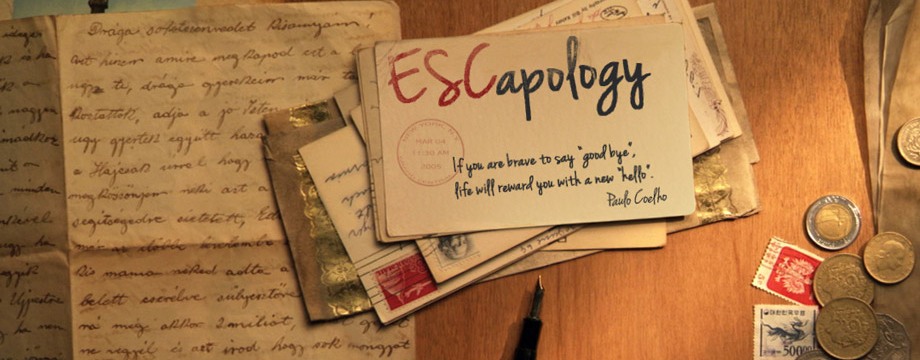
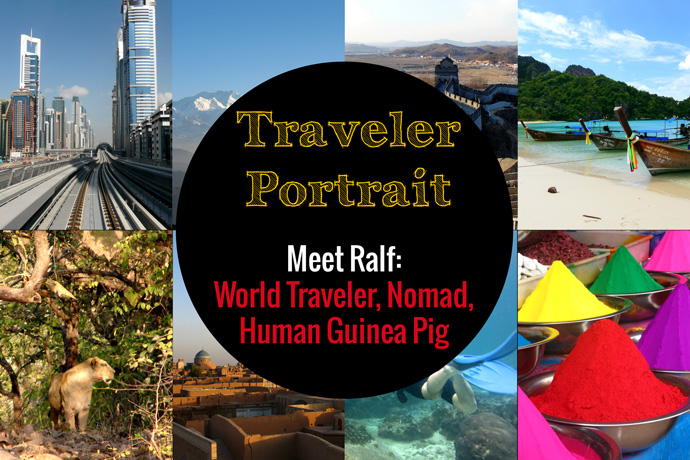
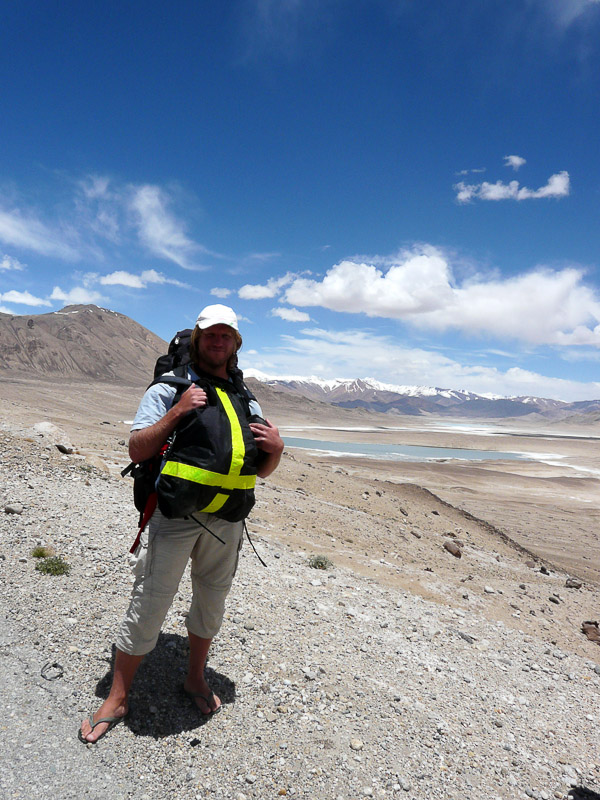
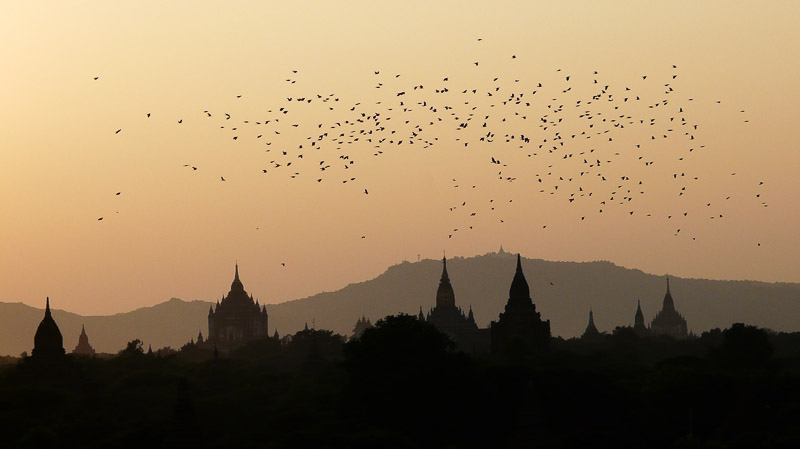
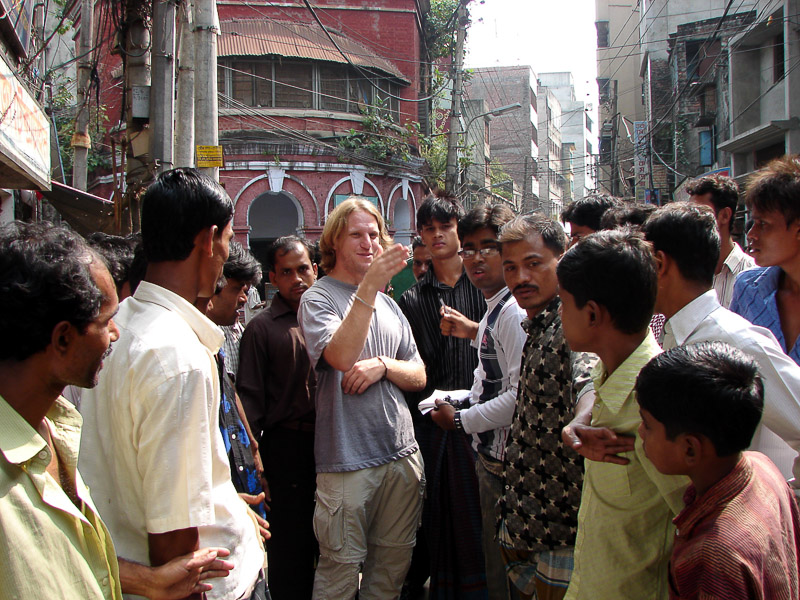
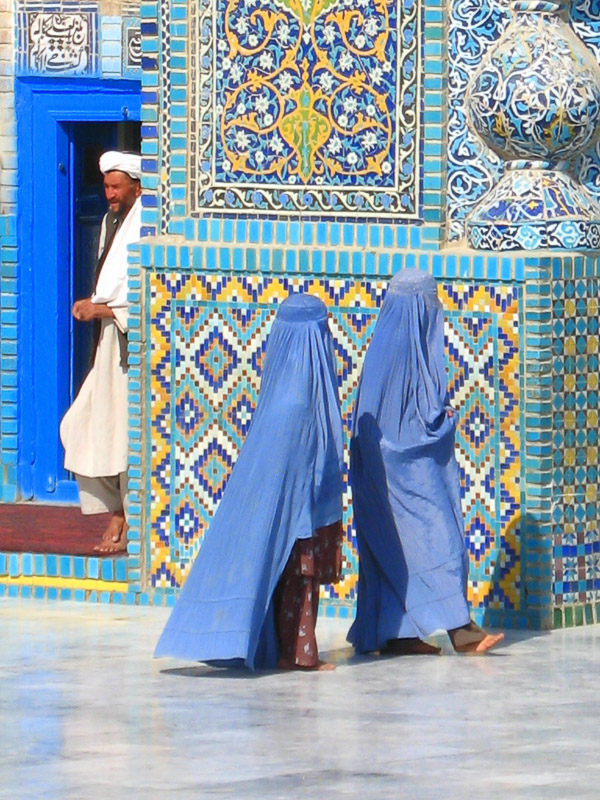
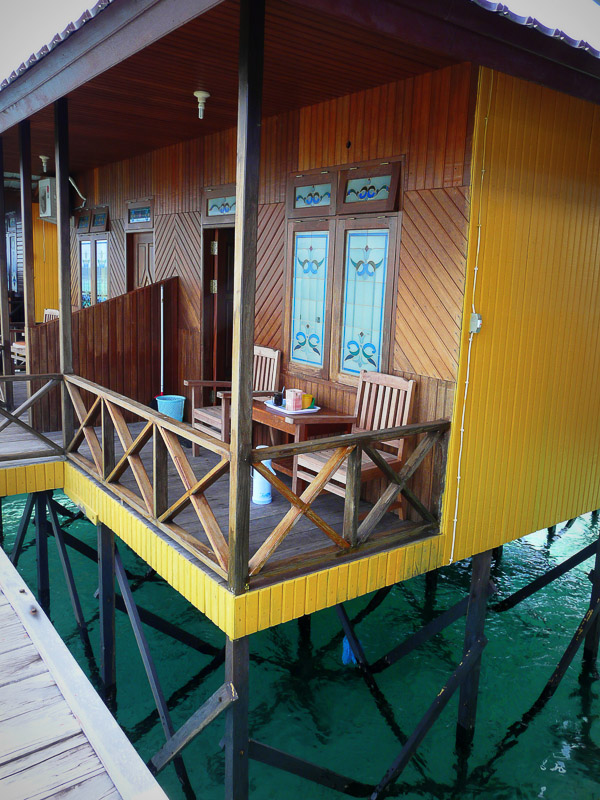
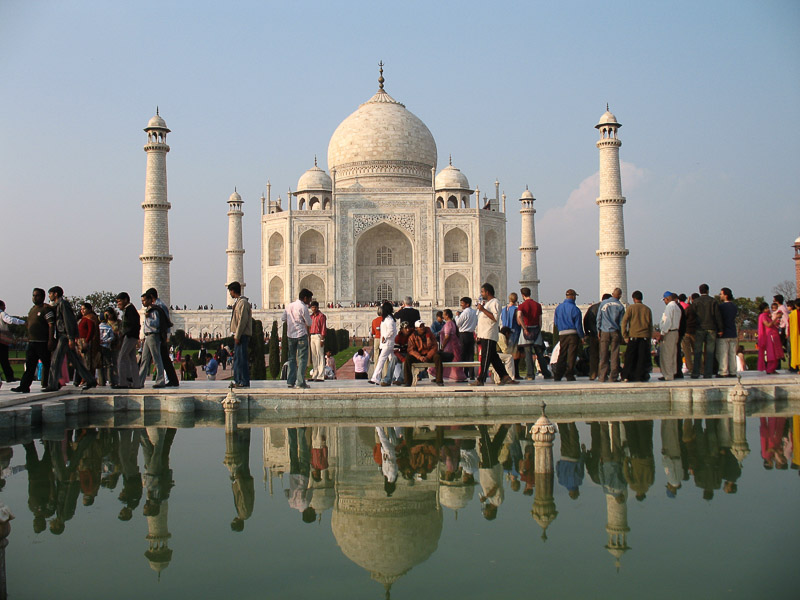
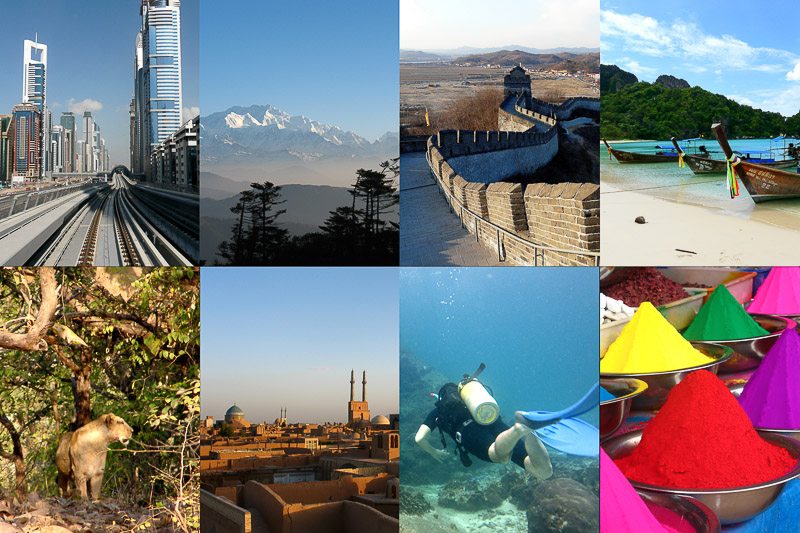
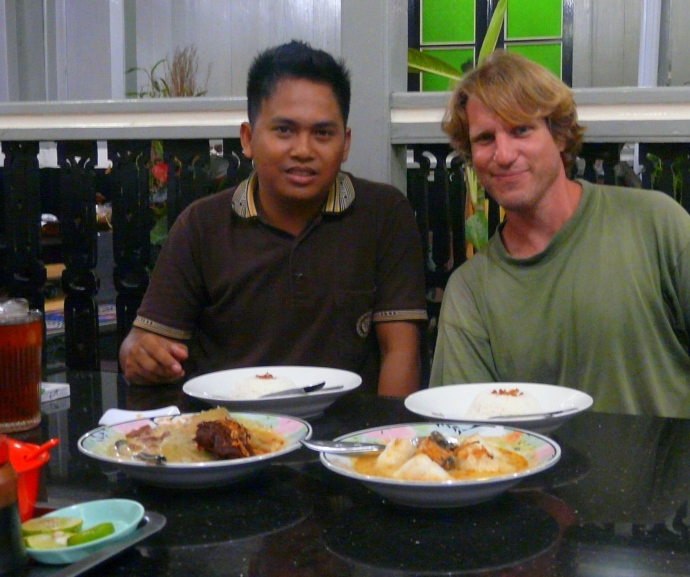











so amazing! i admire Ralf and you Philip for quitting your jobs and travel the unknown. So brave! Wish i could do that!
Hi Ilana, thanks for your feedback. I think Ralf is very brave and determined since he chose to live this life of a true nomad and decided against what others might call a proper career path. I admire that lots. IN the end, everyone can quit to go traveling, even if it is only for a limited time. It is not an easy decision but it is worth it. What do you do now that keeps you from doing so?
Hi Philip. thanks for the reply. It’s hard to quit job especially when paying insurance premiums and housing loans LOL :). I think, travelling once a year will suffice. I also dream that someday when i finished all my financial obligations, i would be able to follow your and Ralf’s footsteps. Sounds like a miracle! More power! 🙂
Hi Ilana, I understand…but having a house is a great thing. I hope you will be able to shake off these obligations rather sooner than later and then travel for a bit longer. Remember, one doesn’t need to travel long term to experience adventure and make great memories. Sometimes even a weekend can be enough..we just have to go and look. Take care!
This is an awesome first portrait. I enjoyed reading about Ralf’s unique way to pay for his travels – quite interesting.
Ralf – How long do you have to stay in clinics for usually ? Is it few days/ weeks or even months ?
I think your story is very inspiring for all fellow travelers 🙂 keep wandering 🙂
Thanks Jyotsna, glad you liked it. It is a unique way of financing traveling, one that I never heard of before. That’s why I thought people would like to hear about it.
Hi Jyotsna,
Didn’t have much internet the last few days, so took some time to reply. About your question on my clinical trials. I try to find a longer trial when I do them, at least 10 days, because less is not really worth it in my case. Three weeks in the clinic is ideal, that pays around 3500 pounds, which keeps me on the road between 4 to 6 months depending on where I go to.
Cheers,
Ralf
Hehe..those numbers even made me think about the option. Very tempting and hearing from someone who has been doing it for some time takes away the abstractness of the concept…. Ralf, maybe we’ll meet in the clinic one day hehe
I salute you, Ralf. You are a truly global citizen. I’m sorry to hear about your father but it’s nice to know that no matter how far your travels take you, family is still a top priority. I’m a little freaked out over the clinical trial thing though haha. I read about it in the news and see it on movies but I have yet to read or meet about someone who’s actually participating in these trials. Congrats on this first series Philipp! You chose wisely on your first travel portrait subject. He hasn’t been to the Philippines yet, has he?
Hey Rachelle, thanks for the feedback and glad you liked the interview with Ralf. I thought it would be something different for people to read as it sure was for me when I came across his blog. I don’t think he has been to the Phils yet.
Thanks you Phillip for interviewing me and putting it up here on your blog, and thanks to everybody who took the time to read it and comment on it.
As observed by Rachelle, I haven’t been to the Philippines yet, but it is on my list (well technically every country on this beautiful planet is on my list, but the Philippines is on my short term to-do list… Say in the next 4 or 5 years)
Thanks Phil for even introducing other inspiring travellers! A great portrait of a guy who lives a totally different lifestyle. Very brave – things I take as a good example. I find it also good that you Ralf took time for your family which is more important than travelling. I hope Ralf you never get seriously sick.. but obviously you’re doing well.
Hi Sanji,
I thought it might be interesting for people to read since it is really something different. Glad you liked this first part of the portrait series. How are you Sanji? How are things going?
It definitely is interesting! I am following every entry and can’t get enough. Things went out so well for me- It’s my last week in the UK working! I was able to brush up my budget for travelling for another year which I will start in October in India, maybe Sri Lanka and Pakistan, then North Thailand, Laos, Vietnam, Myanmar, Cambodia…. Philippines and Indonesia.. I am so excited! I feel like I have just started travelling and India will be my big trip!
In the beginning of September I’ll be in Muenster and would love to catch up with you! (So like in 8 days ;))
Wow, seems like you were able to earn well over there in England…. Traveling for yet another year sounds great. OK, let me know when you will be in MS and we will arrange a meeting. No problem. Schreib mir am besten nochmal an meine E-Mail Adresse wenn du mehr weisst…. dann können wir planen. Bis dahin und viele Grüße.
Philipp